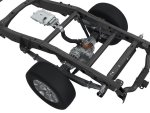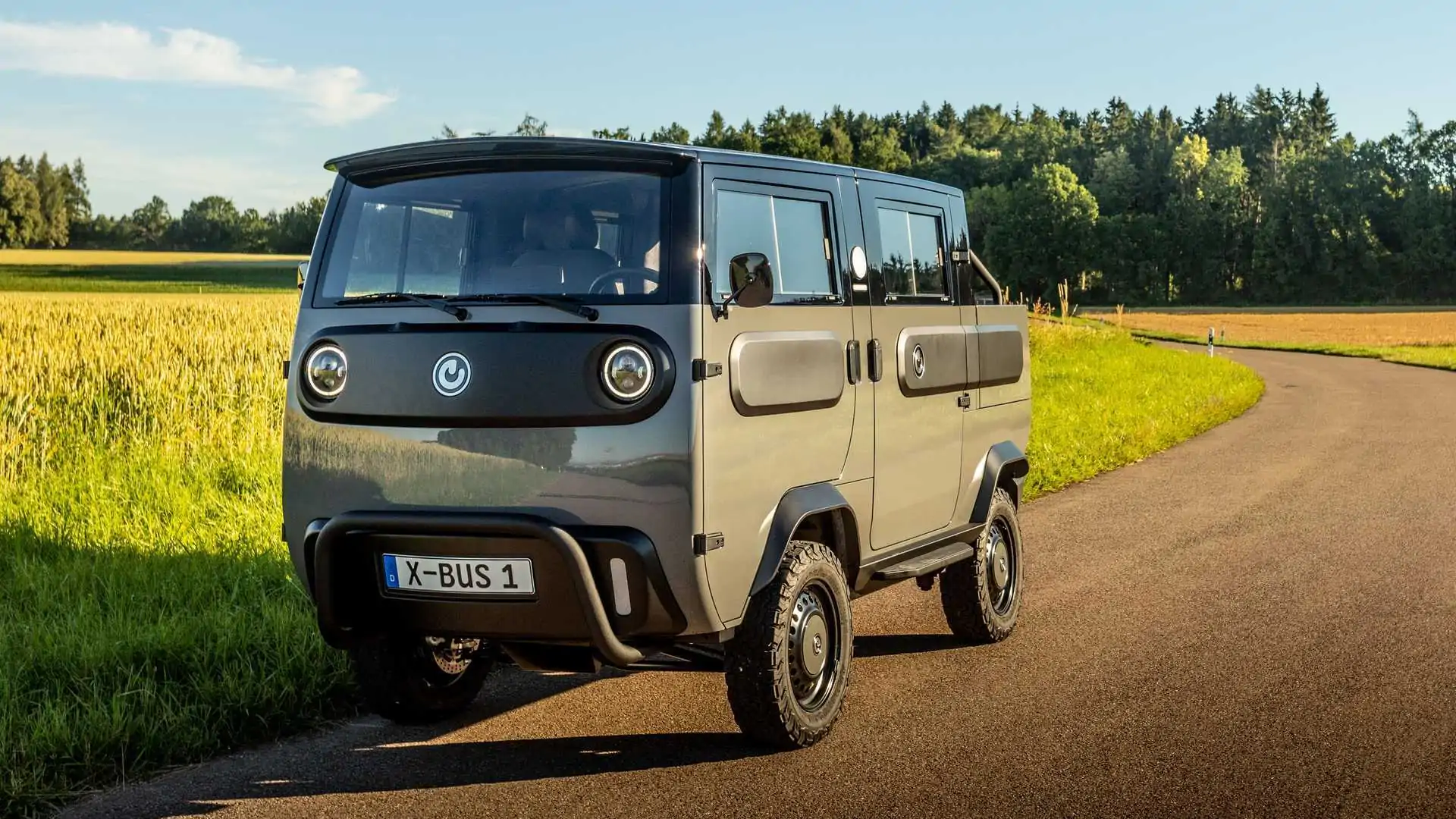This is now on the market.

I look at this and think of all the parts you can disgard.
Engine, transmission, driveline.
Gastank, radiator, exhaust, cats, heat shields.
If want 4WD lose the transfer case, add a second motor.
Traction control, lockers are often electronic which this entire powertrain would be.
You need to add batteries or hydrogen and a heat pump for AC, heat, defrost.
In an overlander/RV everything can now be electric. no need for propane or white gas unless you want it.
You will have room for MASSIVE batteries or hydrogen given all the space now empty plus all the weight you discarded.
Its not here yet but how long before you can recharge off grid. Beyond solar, shock absorbers could be electric, fully adjustable while driving, you will be looking for washboard to generate MORE electricity. Thinking how far ICEs have progressed over the past 40 years, think where battery tech, charging, might be in 20 years. How hard would it be to add a powered axle to your trailer... So many opportunities once we commit to getting rid of infernal combustion engines.....
Never need an oil change lol.
Regarding the myth that stuck in a snow storm yer car will die with nowhere to recharge.... that is a myth and the Toronto storm last week proved it.
Fact, a heat pump while parked is infinitely more efficient that an idling infernal combustion engine. Fact the nurse in her pure electric car sat in the line up for 6 hours and had lots of power ince the traffic started moving. Fact people were delivering gasoline to the ICS cars out of gas. And the biggest problem for people in that gridlock was over powering exhaust fumes from everyone idling on that cold day.
Heat is energy, you idle a gas engine most of the heat is lost thru the radiator. The heater core is tiny by comparison. Then theres the exhaust. Slide under that idling car and grip the catalytic converter. With an electric car there is no lost energy, it all heats the cab with a heat pump and defrosts the windshield with electric resistance..... just like those heated mirrors and seats in every SUV out there.
There are way more plusses to converting to electric power than any of the mythical negatives. We just need to work on better batteries and charging.



